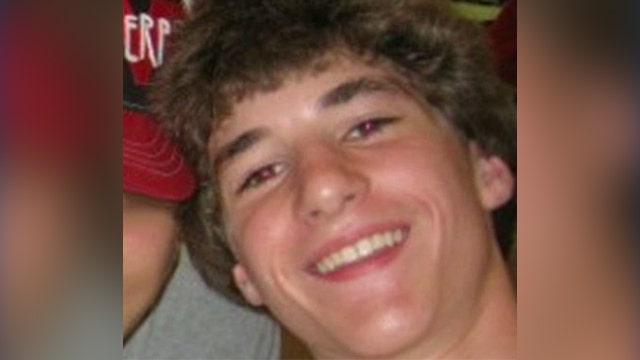An American college student stabbed to death in Egypt during violent clashes says was in the country to teach English to children and to improve his Arabic, his family said Saturday.
Andrew Pochter, of Chevy Chase, Md., was killed Friday in Alexandria during clashes between supporters and opponents of Egypt's Islamist President Mohammed Morsi. Egyptian officials said he was carrying a small camera, Reuters reported.
His family said in a statement Saturday that their son cared passionately about the Middle East and planned to live and work there "in the pursuit of peace and understanding."
"Andrew was a wonderful young man looking for new experiences in the world and finding ways to share his talents while he learned. Andrew cared deeply about his family and his friends," the statement said.
Pochter was looking forward to returning to Kenyon College in Ohio to begin his junior year and had planned to study abroad in Jordan next year, according to the statement.
The country has been roiled by ongoing demonstrations between protesters trying to oust President Mohammed Morsi and Islamists seeking to keep him in power. The U.S. State Department has warned Americans against all but essential travel, and households have been stocking up on goods in case the protests drag on.
The 21-year-old spent his spring semester studying in Amman, Jordan, as part of the AMIDEAST Education Abroad Program. He majored in religious studies, was active in Hillel House — the campus center for Jewish life — and was a member of the rugby club and an organizer for the Middle Eastern Students Association, the college said.
Meryn Chimes, a New York University student who said she was a friend of Pochter, recalled how he traveled to Morocco between high school and college and sent her excited letters about how much he loved it there.
"When he came back, he just had this passion for the Middle East," she said.
During his travels, she said, he would marvel at everything from the food to the people he encountered at marketplaces to the Colonial architecture of Alexandria. She said he told her how much he loved teaching Egyptian children and how they worked so hard to master English.
"He said he hoped they liked him as a teacher, which I'm sure they did," she said.
She said they last spoke a few days ago.
"He really wanted to broaden people's perspective, especially in America. He wanted people to see places the way he saw them," said Chimes, noting how Pochter had spoken of potentially becoming a reporter.
"He saw the world in a way that I don't think anyone else did, and it was a really beautiful way," she added.
Lucas Pastorfield-Li, a friend from college, said he bonded with Pochter over a shared interest in education and international affairs. He said Pochter was soft-spoken and humble but also a talented musician who would weave international topics — he did a college research project on the Muslim Brotherhood — into freestyle raps.
"He had a way of just being way too wise beyond his years. I feel like most of the people in my generation are constantly trying to be heard," said Pastorfield-Li, 20, adding, "He had an amazing way of just conveying wisdom in such a humble and kind of subtle way."
He said Pochter would have been the "perfect poster boy" for any ad campaign for the college.
"It's not just me right now that this is really affecting," he said. "He was such an important person to so many people at the school, and Kenyon's such a small school, someone like Andrew is going to be a celebrity."
The Associated Press and Reuters contributed to this report.

